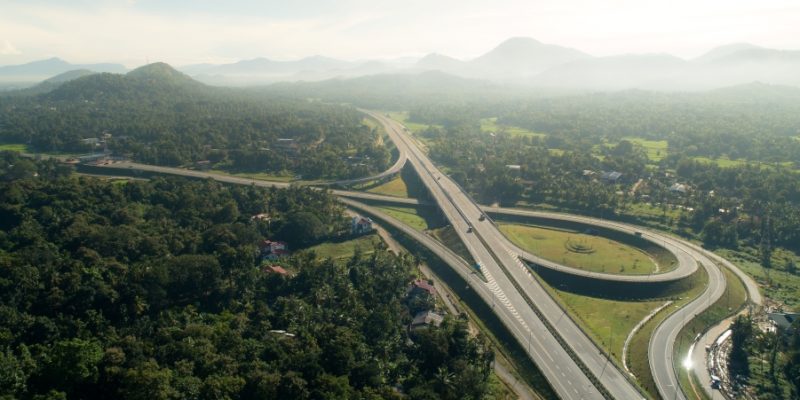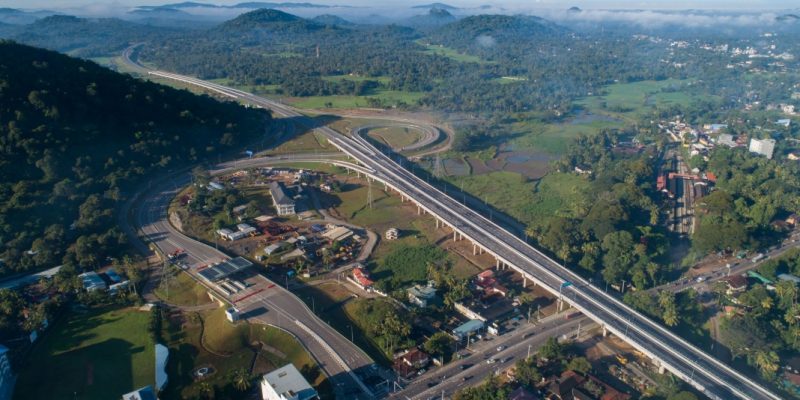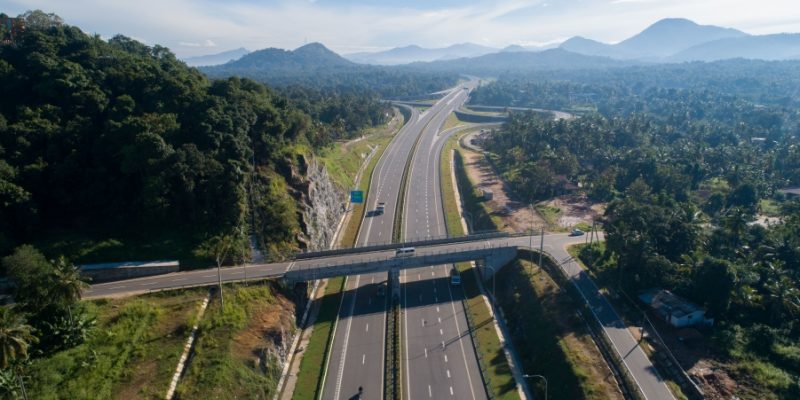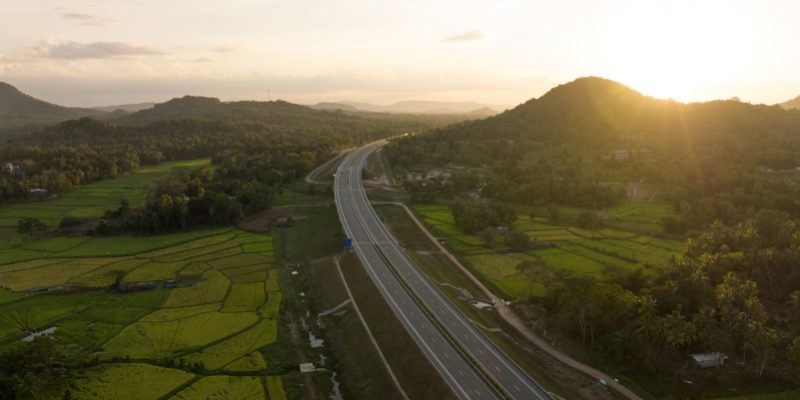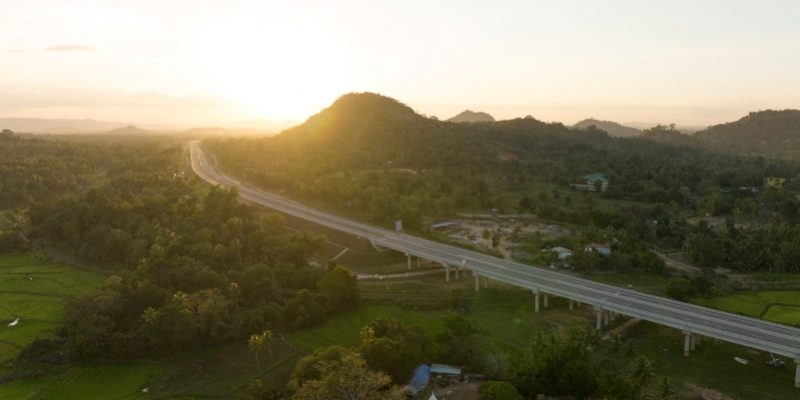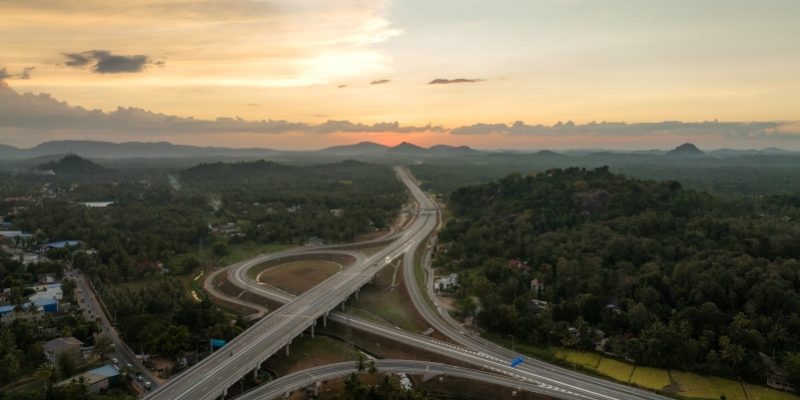The Central Expressway is Sri Lanka’s fourth expressway that will eventually link major cities of Dambulla and Kandy to the country’s growing expressway network. Section II of the Central Expressway was ceremoniously opened to the public by President Gotabaya Rajapaksa and Prime Minister Mahinda Rajapaksa on 15 January 2022. Commencing at Mirigama and proceeding almost 40km to Kurunegala, the expressway is a feat of modern engineering and construction achieved by a consortium of experienced local construction companies. The newly opened section constitutes 4-lanes, and is designed to accommodate speeds of 100km/hr.
This project was envisioned by the Government of Sri Lanka and the Ministry of Highways, based on the National Master Plan for development of land-based transport. In line with the government’s long-term strategy for development, the Central Expressway is a key component in providing efficient transport infrastructure that is essential for the country’s growth trajectory. Implemented by the Road Development Authority (RDA) under the guidance of the Ministry of Highways, the Central Expressway was fully funded as a national investment through Sri Lankan banks.
MAGA worked in partnership with several major construction contractors, undertaking the role of consortium leader of Package-D comprising VVK, Hovael and CML-MTD. A key section of the Expressway from Maditiyawala to Kurunegala, Package-D involved design and construction the expressway nearing the Kurunegala Town and linking the expressway with the A6 road. This expressway section also runs along a floodplain adjacent to the Wendaru Wewa, an ancient tank that provides water supply for Kurunegala Town, supports irrigation in the area, and hosts a number of wetland bird species. MAGA’s in-house design engineers carried out all structural and hydrology designs of Package-D, under the expert guidance of the RDA and the SLLDC. Features of the section included 4 interchanges, 6 viaducts (almost 3km), 02 main bridges and 03 ramp bridges, 01 overpass, 15 underpasses, 145 culverts, and additional access and link roads.
The project team supervised and carried out challenging feats of engineering including rock-slope protection via soil-nailing and rock-nets, and circumvention of multiple rail crossings, floodplains, spill areas, and irrigation canals through the construction of viaducts. The project team also erected noise-barriers to mitigate potential sound pollution; installed bird-fencing to reduce the impact on wetland bird populations; and worked closely with communities to support local government authorities, schools, community organisations, and cultural and religious institutions.
To execute a project of this magnitude, MAGA deployed multiple specialist project managers and a team of more than 2000 construction engineers, design engineers, technical specialists, administrative staff and construction workers. The Package-D consortium was led by Mr Piyadasa Madarasinghe, Chief Executive Director of Maga Engineering as the Consortium Team Leader/Contractor's Representative.
Completion of the project according to schedule showcased the company’s experience, capacity and financial strength to deliver large-scale infrastructure to international standards. Inspired and methodical project management played a key role in the project, and allowed the project team to adapt to challenges and deliver outstanding quality of construction. Commenting on completion of the project, Mr Piyadasa Madarasinghe noted “This is a proud moment for Sri Lanka’s construction industry, as a number of local construction contractors have come together to deliver a megaproject of national importance, meeting international standards, with funding from local banks.” “MAGA is proud to be a lead partner in one of the consortiums that brought to life this key section of the Central Expressway, and we trust that all contractors will derive important lessons learned from the project, as they move forward to implement more projects of such giant scale and national importance in the future.”
Chairman & Managing Director of Maga Engineering Mr M G Kularatne acknowledged the trust extended to local contractors by the government of Sri Lanka: “We congratulate the visionary leadership of the Government of Sri Lanka, whilst appreciating the guidance given by the Ministry of Highways and the expertise displayed by the Road Development Authority in bringing to life Section 2 of the Central Expressway against all odds, thus creating a catalyst for the future growth of Sri Lanka’s economy.” “The success of the project was also made possible by the strength of Sri Lankan banks, their trust placed in a consortium of expert local contractors, and their commitment to Sri Lanka’s continued development.”
The full length of the Central Expressway, once completed, will connect the country’s three main economic corridors, whilst linking Sri Lanka’s hill capital Kandy and agricultural hub Dambulla with Colombo and the rest of the expressway network. The Expressway will also stretch across a number of rapidly urbanising towns – Gampaha, Veyangoda, Mirigama, Pothuhera, Kurunegala, Rideegama, Melsiripura, Galewela, Rambukkana, and Galagedara. A critical component in a future-ready road network that will benefit all Sri Lankans, the new expressway will improve mobility, reduce burden on existing transport systems, improve efficiency and quality of road infrastructure, and contribute to the long-term development of industries, services, and communities across multiple provinces.

